I recently (August 24-30) attended a conference in Athens, Greece, where I presented and led a discussion on a project launched by the Classics Library called the Greek Digital Journal Archive (GDJA). The goal is to create a consortium to offer fulltext and detailed descriptions (so called metadata) for Greek journals in the humanities and the social sciences, newspapers, and newsletters published 1811-1949 (current out-of-copyright date) in one searchable and open online repository.
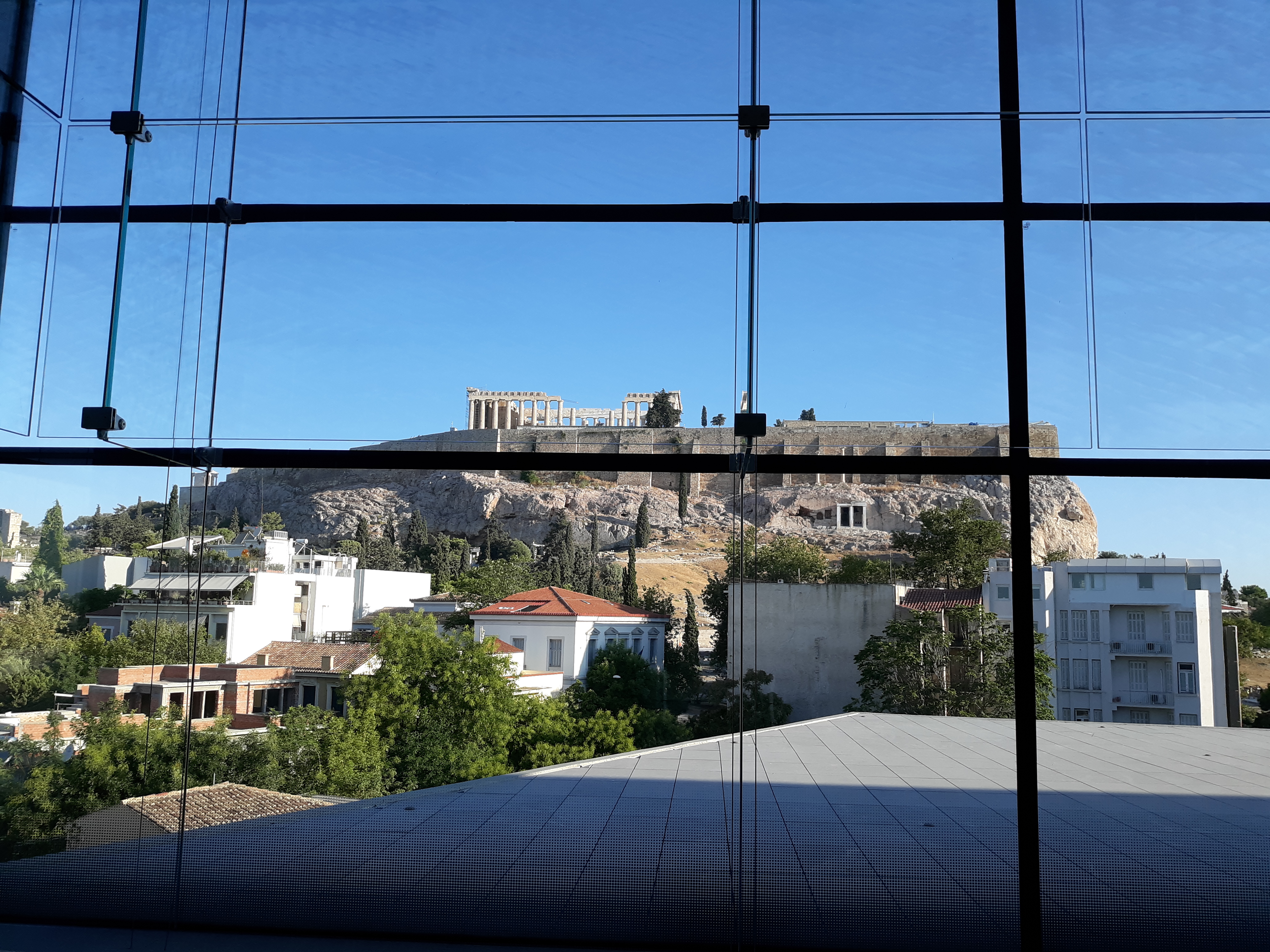
The Athenian Acropolis
The famed UC archaeologist Carl W. Blegen was a great Philhellene. He owned a house in Athens, in the posh neighborhood of Kolonaki, also the home of the American School of Classical Studies at Athens (ASCSA), but never in Cincinnati although he taught here part of the year. He along with benefactor and the then Chair of the Classics Department, William T. Semple (1921-1959), devoted much time, money, and effort to building the Greek collections, initially focusing on Ancient, but soon also on Byzantine and Modern Greece. Blegen would take frequent book purchasing trips to London, New York, Paris, and Istanbul in his pursuit to expand the Classics Library’s collections, especially of Greek materials. In 1953, under the leadership of Blegen, UC took on the responsibility for collecting scholarly Greek publications in all disciplines except for in agriculture, medicine, and law. This initiative formed part of the efforts of many academic research libraries in the U.S. during and after WWII to salvage and preserve library and archival materials in European libraries ravaged by war. This project was named the Farmington Plan after a town in Connecticut in which the first meeting was held. The idea was for U.S. libraries to take on the collecting of specific geographic areas, which were expanded to include the world since there were wars and disasters also in other parts of the world besides Europe. UC assumed responsibility for Greek publications, such as journals, hence UC’s distinguished collection of Modern Greek journals.
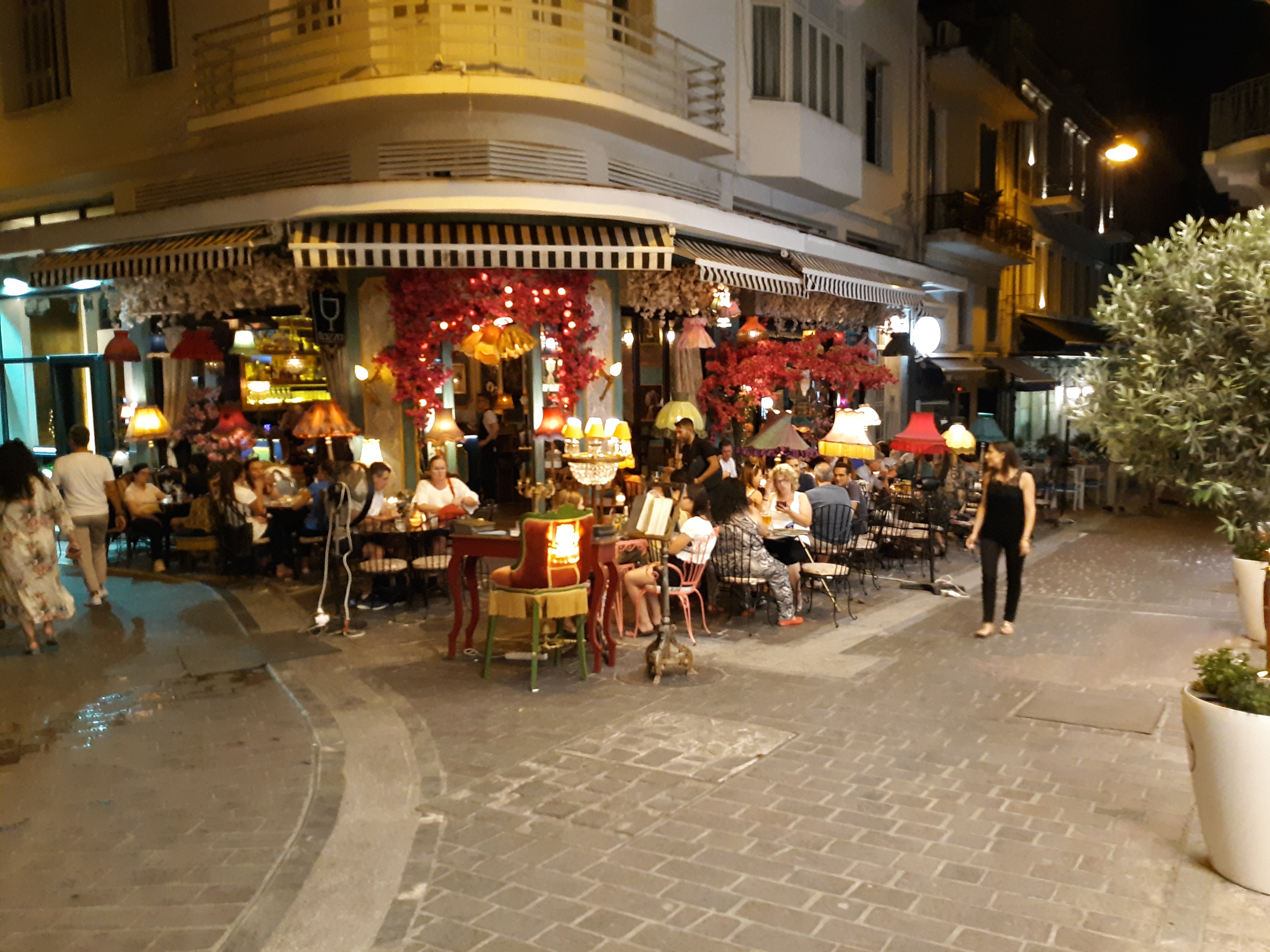
Athenian nightlife
The journals in the Classics Library are in print. Some of them are in poor physical condition. The collection is frequently requested via Interlibrary Loan and OhioLINK. Unfortunately, the Library’s small staff cannot scan more than brief articles. Often an entire issue or even an entire run is requested. Digitizing this collection would not only preserve it, but also potentially make it available also to scholars outside of UC. The digital collections & repositories department in Langsam, however, cannot take this on because of limited resources and because there are many projects that perhaps are more urgent. Outsourcing the digitization would cost between $400,000 and $800,000, depending upon the level of OCR correction necessary. This too is not feasible. Also, even though our collection is very strong and quite unique, we do lack journal titles and issues within the journal runs we hold. I have, therefore, pursued the possibility of a consortium of multiple libraries taking on this project. This way, the financial burden could be shared and the journal and newspaper runs be more complete.
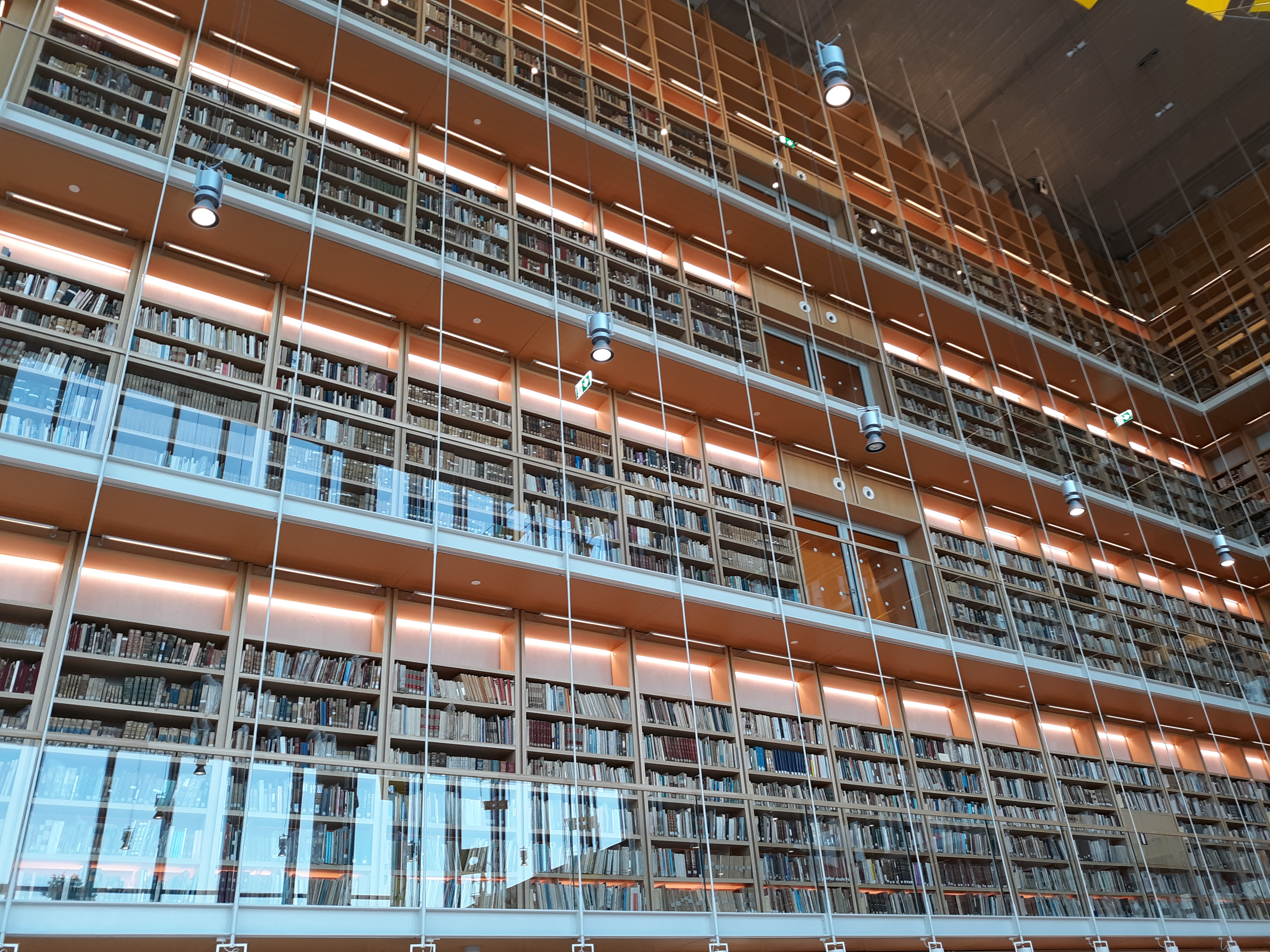
The Library of the Stavros Niarchos Cultural Center
Many Greek historic journals have in fact already been digitized although one major obstacle users have is the disparate digitization efforts. The digitized journals are often difficult to locate and access in Greek libraries. There are a few in several libraries or academic departments, few coordinated efforts, but these are often hidden under multiple layers of discovery. In other cases, such as at the University of Cyprus, their digital journal collection is not easily accessible outside of the University of Cyprus community although scanned documents may be available upon request.
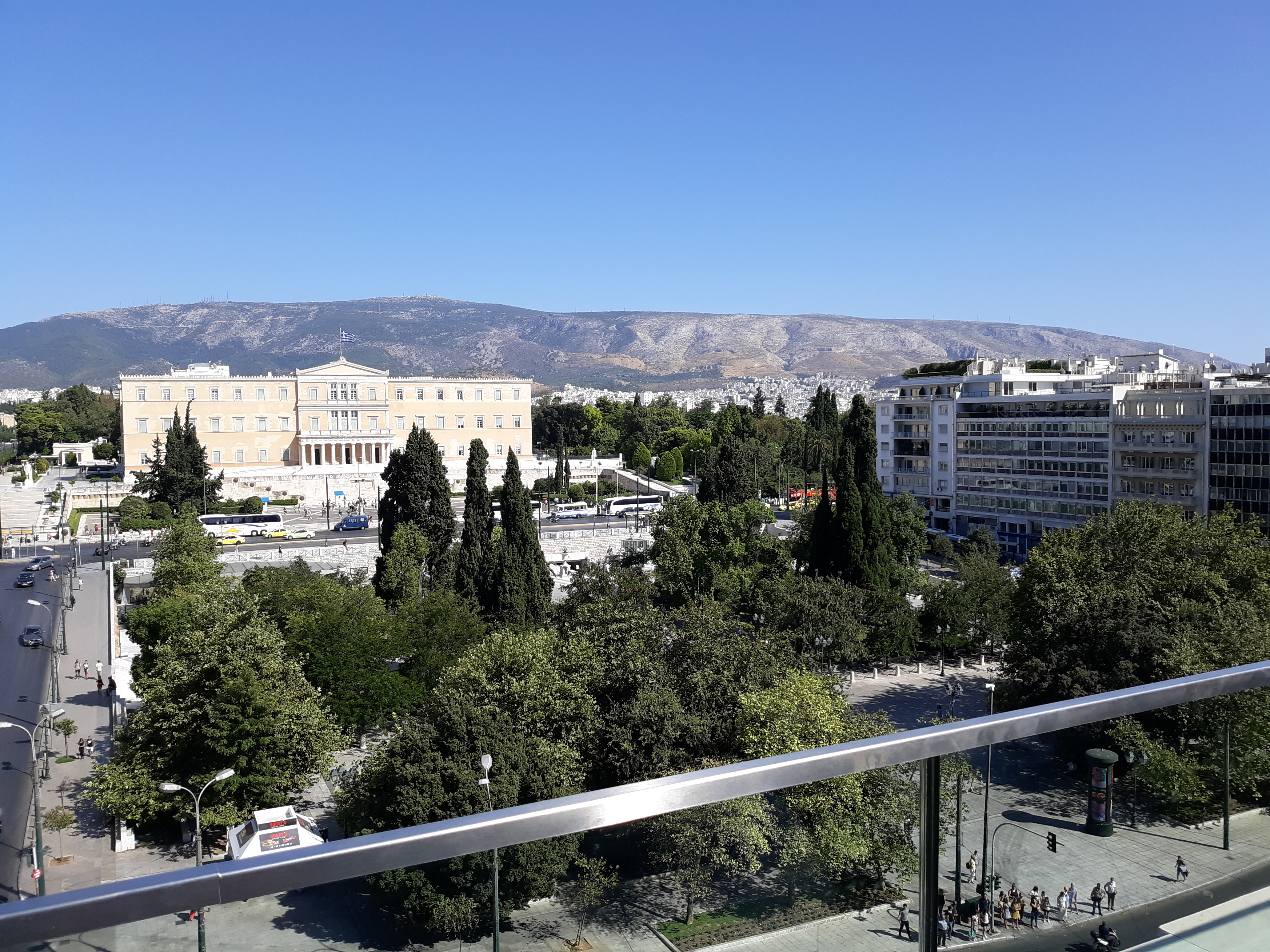
Syntagma Square and the Greek Parliament
To explore the possibility of and interest in forming such a consortium, the Classics Library organized a conference at UC in October of last year. Participants included the Tsakopoulos Hellenic Collection at California State University, Sacramento, the University of Michigan, Ann Arbor, Harvard University, the Library of Congress, the National Library of Greece, the Gennadius Library, and King’s College London.
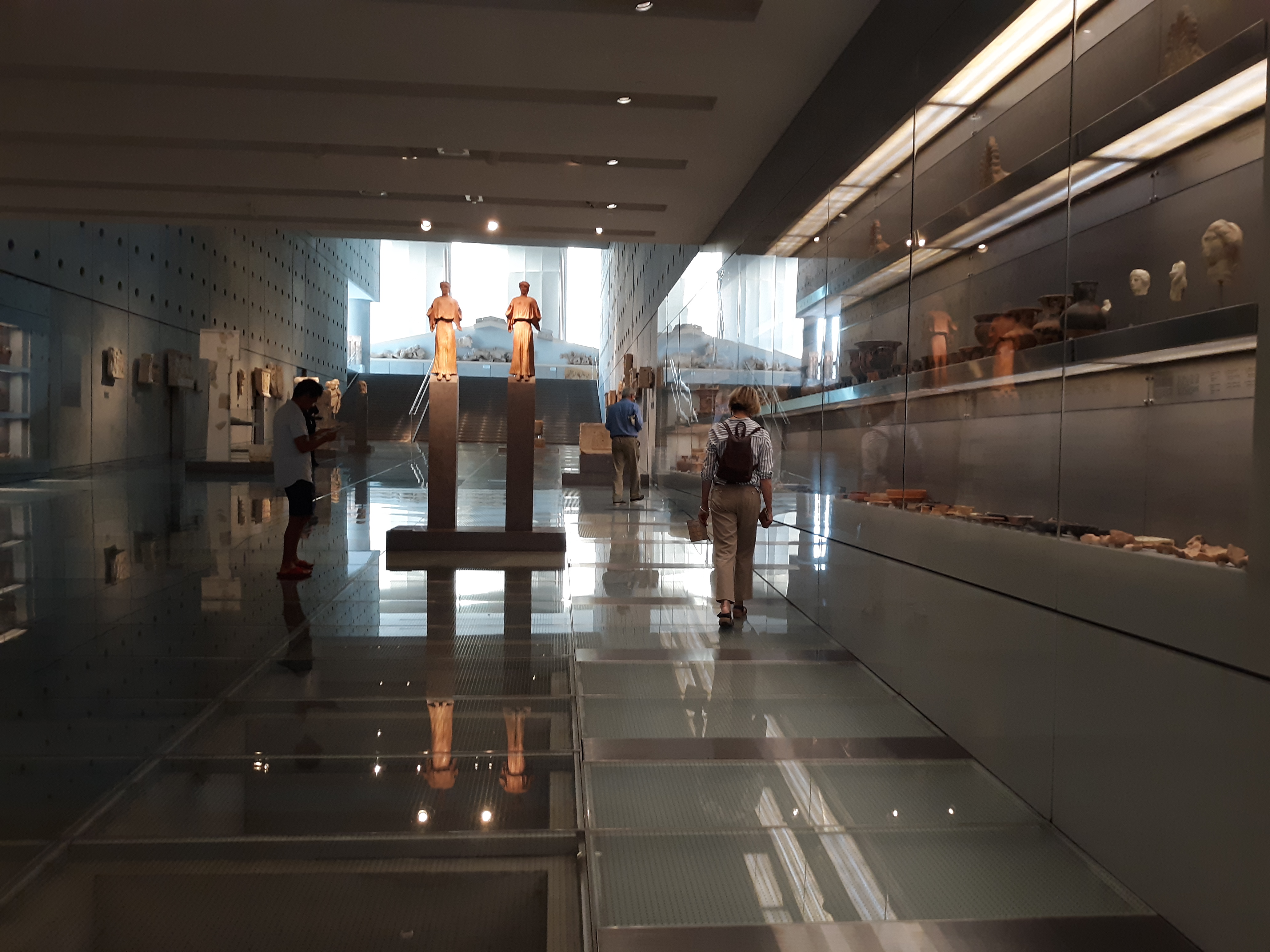
The Acropolis Museum
The participants at the recent conference in Athens also included representatives from the Greek Parliamentary Library, the Greek National Documentation Centre, the University of Patras, the University of Crete, the Center for Research Libraries, and the Blegen Library of the American School of Classical Studies at Athens.
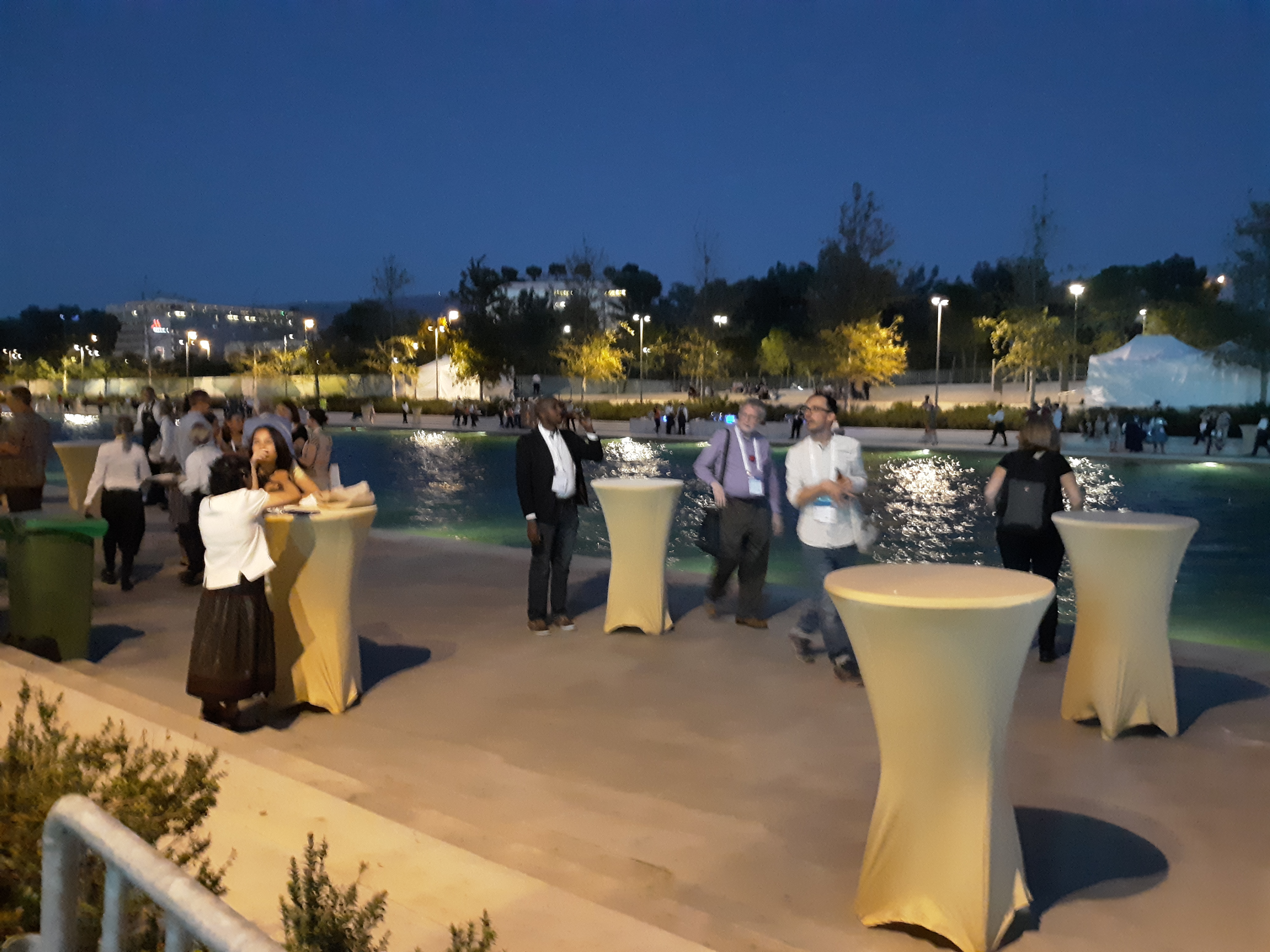
Conference goers enjoyed Greek foods, music, and dance at the Stavros Niarchos Cultural Center.
The cooperating institutions in the project also include the Centre for Asia Minor Studies, Athens, Princeton University, and the University of Minnesota (the Immigration History Research Center Archives).
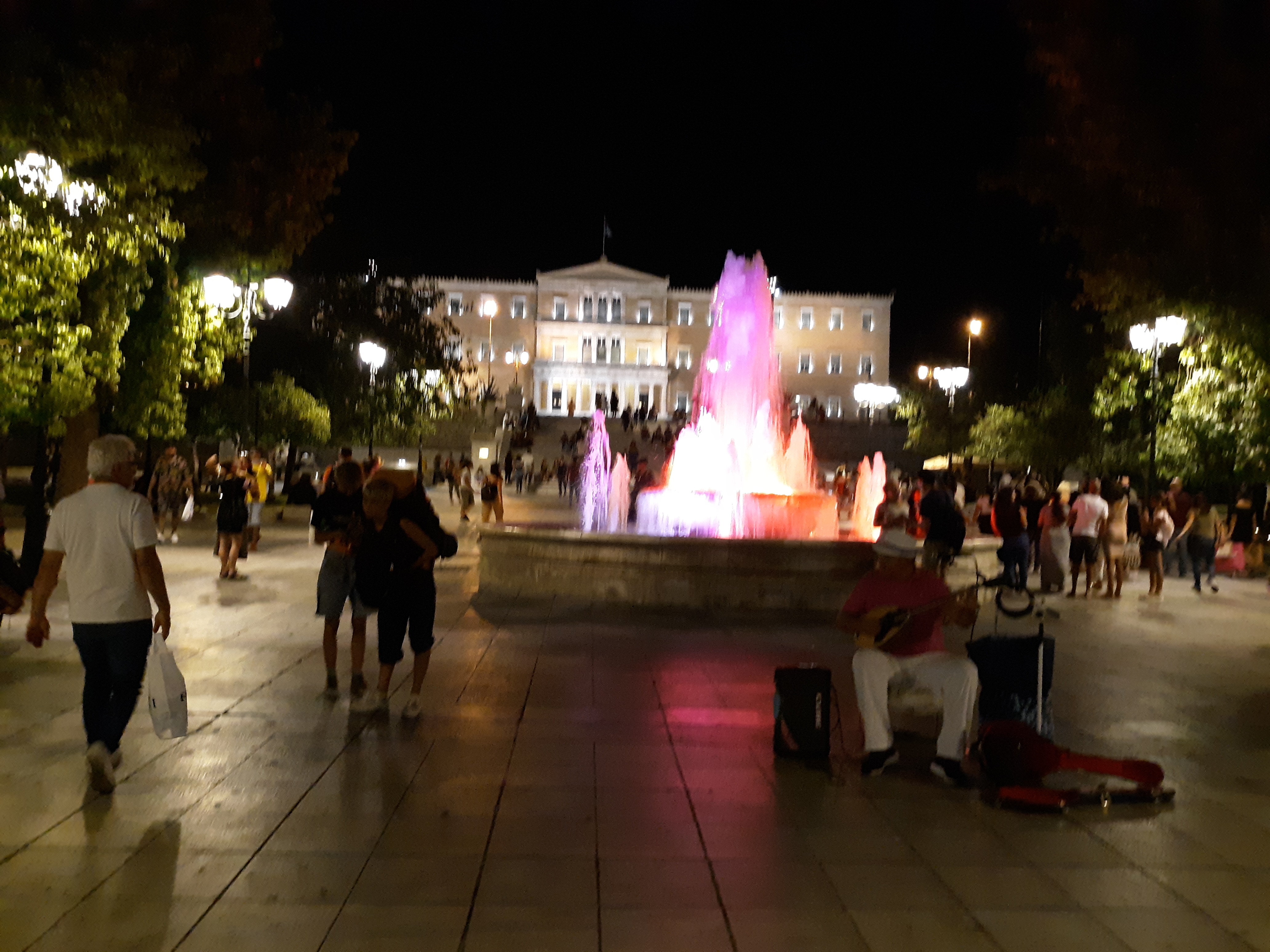
Syntagma Square at night
Cooperating institutions have so far contributed inventories to determine unique titles at each institution and also items shared by multiple libraries and archives. Four journal issues have been digitized by UC and a couple of titles at other institutions have been linked to as “proof of concept” in a Repository under development. There is also a Website in progress.
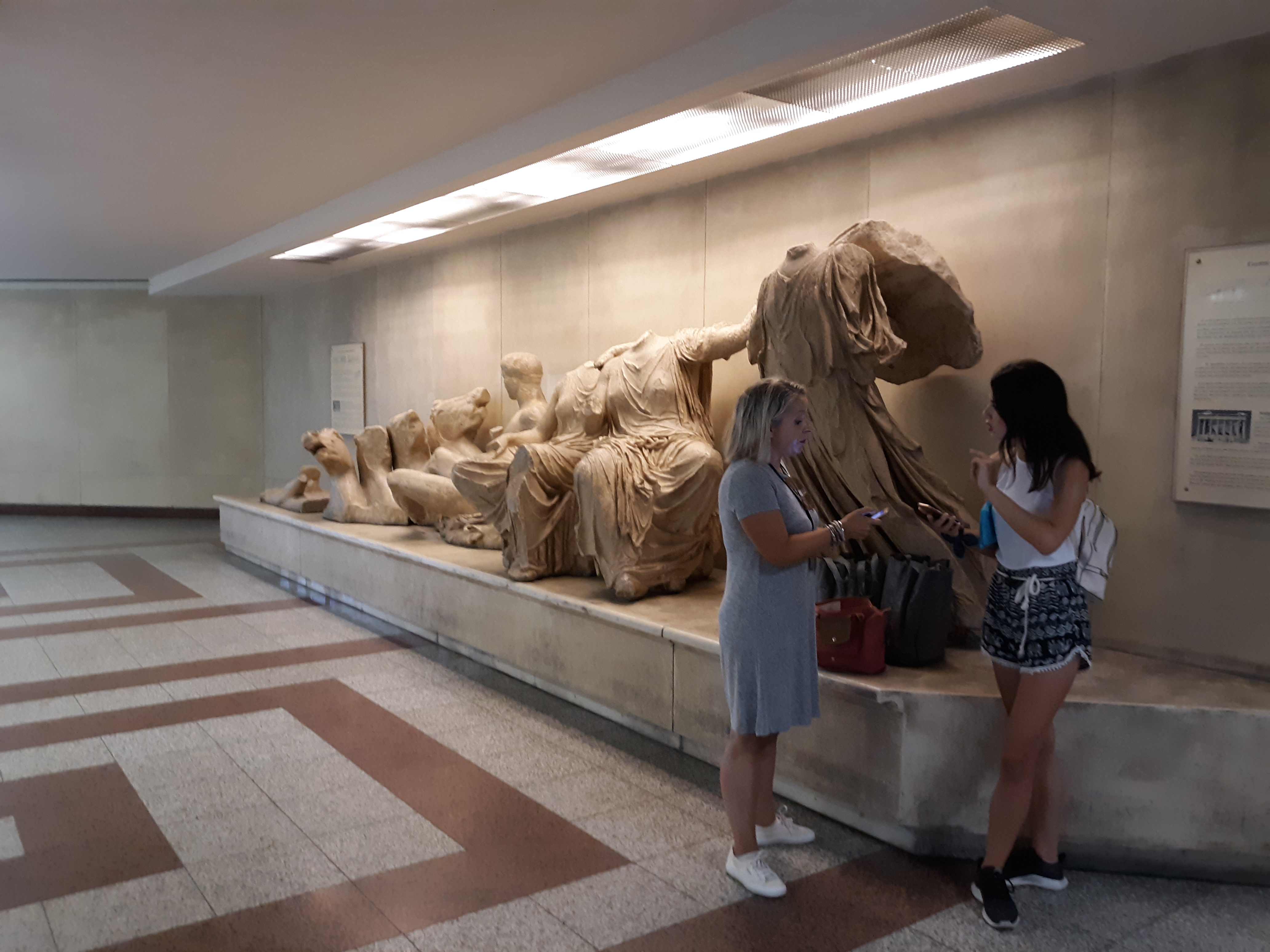
Present-day Greeks are proud of their ancient Greek heritage. Copies of the east pediment of the Parthenon can be seen in Athens’ subway.
The next meeting of the GDJA will take place at the Symposium of the Modern Greek Studies Association in Sacramento, California, on November 8 at 1:15 pm.
If you have questions about this project or would like to contribute financially or by volunteering, please contact me at (513) 556-1316, lindaura@ucmail.uc.edu.
